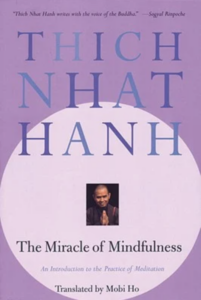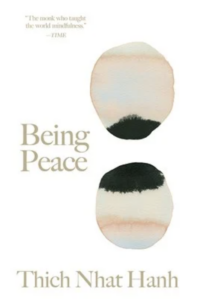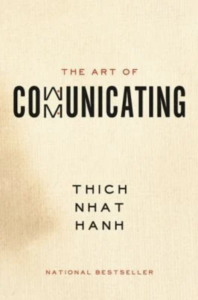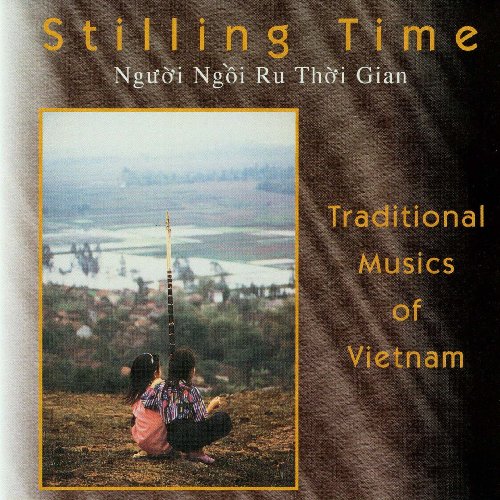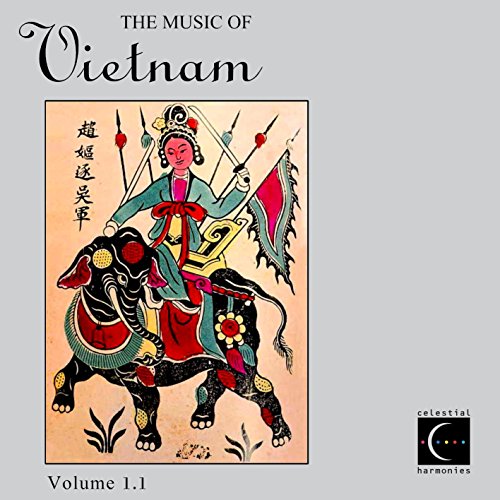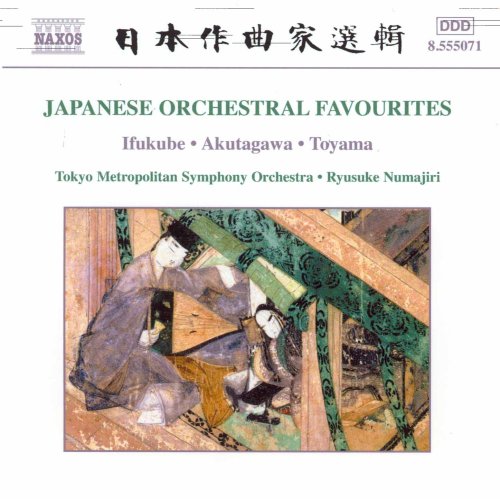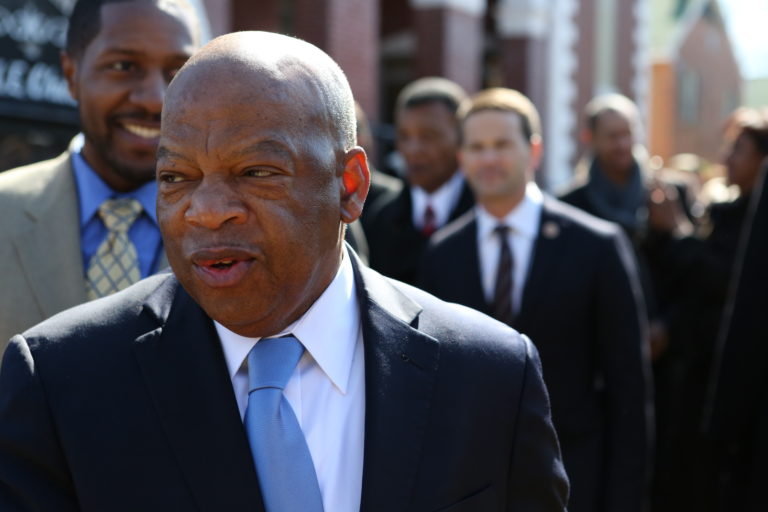Remembering Thich Nhat Hanh, Brother Thay
The Venerable Thich Nhat Hanh, revered Zen master, teacher, and poet, died on January 22, 2022, in his native Vietnam. Brother Thay, as he was known by his community and students, transmuted what he had experienced of chaos and bloodshed in his country and his life into an ability to speak with equal measures directness and compassion to the many conflicts and bewilderments of contemporary life. Martin Luther King Jr. nominated him for the Nobel Peace Prize. He was a great teacher of the wonderful practice of “walking meditation.” He taught a way of living to face suffering, fear, and violence inside and beyond ourselves and yet to become “fresh, solid, and free.” Krista sat with him for this rare conversation in the early years of this show, and it has touched many. It is astonishing to re-experience the deep, enduring wisdom this monk leaves for our world now.
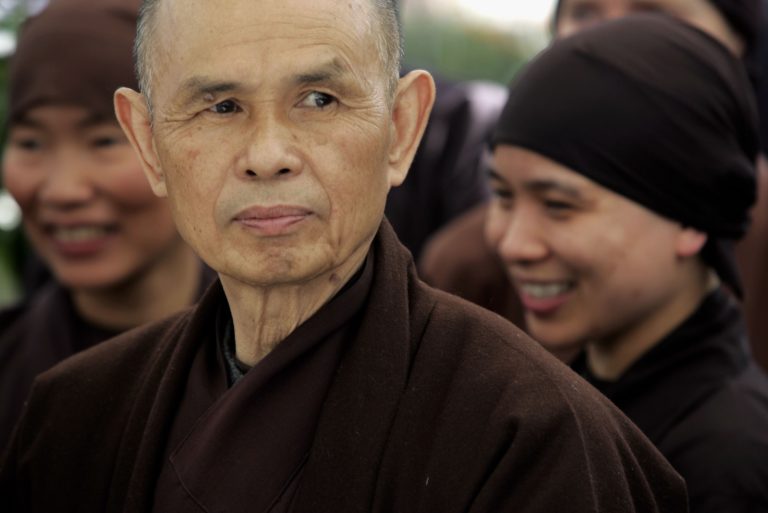
Image by Peter Kramer/Getty Images, © All Rights Reserved.
Guests
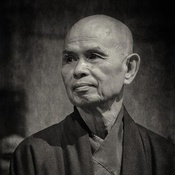
Thich Nhat Hanh was a Vietnamese Zen master, poet, and teacher. He first came to the world's attention in the 1960s during the war in his native Vietnam, as he forsook monastic isolation to care for the victims of that war and to work for reconciliation among all the warring parties. He called this “engaged Buddhism.” Martin Luther King Jr. nominated him for the Nobel Peace Prize, and he led the Buddhist delegation to the Paris Peace Talks in 1969. He wrote his classic book, The Miracle of Mindfulness, as a manual for young nuns and monks who were facing death every day during war in his country. He settled in exile in France and there he founded Plum Village, a Buddhist community, or Sangha, that has spawned communities of practice and service around the world. Other books among his many beloved include Being Peace and The Long Road Turns to Joy: A Guide to Walking Meditation.
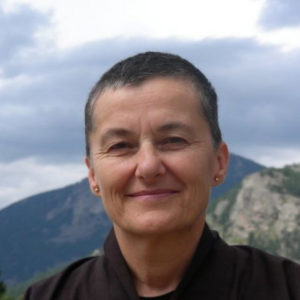
Cheri Maples served in the criminal justice system for 25 years, including as an Assistant Attorney General in the Wisconsin Department of Justice, and as a police officer with the City of Madison Police Department. She co-founded the Center for Mindfulness and Justice in Madison, Wisconsin. She was ordained as a Dharma teacher by Thich Nhat Hanh in 2008. Cheri died in July 2017.

Larry Ward is co-founder of the Lotus Institute, and was ordained as a Dharma teacher in Thich Nhat Hanh's Plum Village tradition. He accompanied Thich Nhat Hanh on peace-building missions internationally, as well as throughout the United States. He brings 35 years of experience in organizational change, local community renewal, and religion studies. In 2020 he published America's Racial Karma: An Invitation to Heal.
Transcript
Transcription by Heather Wang
Krista Tippett, host: The Venerable Thich Nhat Hanh’s life was a startling, paradoxical merger of extreme gentleness with tangible power. This revered Zen monk, teacher, and poet died last week in his native Vietnam, at the age of 95.
He was a great teacher of the wonderful practice of walking meditation. He taught “the art of being peace”: a way of living to face suffering, fear, and violence, inside and beyond ourselves, and yet to become, as he wrote, “fresh, solid and free.”
These were not lofty spiritual ideals for Thich Nhat Hanh. He wrote his classic book The Miracle of Mindfulness as a manual for young nuns and monks who were facing death every day, during war in their country. Thich Nhat Hanh transmuted what he had experienced of chaos and bloodshed in his own life into an ability to speak, with equal measures directness and compassion, to the many conflicts and bewilderments of contemporary life. He led the Buddhist delegation to the Paris Peace Talks in 1969, and Martin Luther King, Jr. nominated him for the Nobel Peace Prize.
I met him in the early years of this program around the edges of a multi-day, lakeside retreat he was leading in Wisconsin. For the first time at such a gathering, more than 50 people who worked in the criminal justice system were present, about half of them police officers. You’ll hear one of them a bit later in this hour. It is astonishing to re-experience the deep, enduring relevance of this monk’s teachings for our world now.
[music: “Seven League Boots” by Zoe Keating]
I’m Krista Tippett, and this is On Being.
Thich Nhat Hanh first came to the world’s attention in the 1960s, during the war in his native Vietnam. He forsook monastic isolation to care for the victims of that war and to work for reconciliation among all the warring parties. He called this “engaged Buddhism.”
He was expelled from post-war Vietnam, because he had refused to take sides even as he worked for peace. He settled in France, and there he founded Plum Village, a Buddhist community, or sangha, that has spawned communities of practice and service around the world. His students called him “Thay,” the Vietnamese word for teacher. He attracted crowds of thousands when he spoke. Five hundred people of every background and profession attended the retreat where I was to interview him.
[prayer]
Each day included teaching, rest, and seated and walking meditation, with a morning gathering in a sunlit auditorium. There, Thay taught for hours, even approaching 80, holding the entire room rapt with his quiet, intense, lyrical speech. And one afternoon, he sat down with me.
I think what intrigued me — and I know since we don’t have lots of time and you’re very tired — is that you actually wrote The Miracle of Mindfulness in those years when you had somewhat withdrawn from that great political and social activism of the 1960s. And so I wondered if mindfulness, that emphasis on mindfulness, was really the core of the learning that you took away from those years of such turmoil and activism on your part.
Thich Nhat Hanh: Well, that was the practice that kept us alive, helped us to survive. And The Miracle of Mindfulness was written for our social workers, first, in Vietnam, because they were living in a situation where the danger of dying was there every day. So out of compassion, out of a willingness to help them to continue their work, The Miracle of Mindfulness was written as a manual practice. And after that, many friends in the West, they think that it is helpful for them, so we allow it to be translated into English. And so.
Tippett: And what is the Vietnamese word that you’re translating as “mindfulness”? What are the connotations of that, I wonder?
Thich Nhat Hanh: [speaks Vietnamese], it means “true mindfulness.” [speaks Vietnamese] means your mind fully present in the here and the now. And mindfulness is at the heart of Buddhist meditation, because with mindfulness, you’ll be concentrated. And mindfulness and concentration help you to see things and to touch things more deeply, so that you might understand the true nature of what is there.
Tippett: What have you done with this concept that is different? I mean, how did you interpret it or apply it differently, that it had such an impact?
Thich Nhat Hanh: Well, mindfulness is a — when you are mindful, you are fully alive; you are fully present. You can get in touch with the wonders of life that can nourish you and heal you. And you are stronger, you are more solid in order to handle the suffering inside of you and around you. When you are mindful, you can recognize, embrace, and handle the pain, the sorrow in you and around you, to bring you relief. And if you continue with concentration and insight, you’ll be able to transform the suffering inside and help transform the suffering around you.
Tippett: And this word “miracle” on the surface is quite intriguing, when what you’re describing is so organic. I mean, it’s getting in touch with your breath, first of all. Does that word, or does this phrase, “the miracle of mindfulness,” does that come out of your Buddhist training, or was that a phrase that came to you?
Thich Nhat Hanh: It is in my heart when I use it, because when you breathe in, your mind comes back to your body. And then you become fully aware that you are alive, that you are a miracle, and everything you touch could be a miracle. The orange in your hand, the blue sky, the face of a child — everything becomes a wonder. And in fact, they are wonders of life that are available in the here and the now. And you need to breathe mindfully, in and out, in order to be fully present and to get in touch with all these things.
And that is a miracle, because you understand the nature of the suffering, you know that role of suffering that suffering plays in life, and you are not trying to run away from suffering anymore, and you know how to make use of suffering in order to build peace and happiness.
It’s like growing lotus flowers. You cannot grow lotus flowers on marble; you have to grow them on the mud. Without mud, you cannot have a lotus flower. Without suffering, you have no ways in order to learn how to be understanding and compassionate. That’s why my definition of the Kingdom of God is not a place where suffering is not; where there is no suffering.
Tippett: The Kingdom of God?
Thich Nhat Hanh: Yeah, because I could not like to go to a place where there is no suffering. I could not like to send my children to a place where there is no suffering, because in such a place they have no ways to learn how to be understanding and compassionate. And the Kingdom of God is a place where there is understanding and compassion; and therefore, suffering should exist.
Tippett: That’s quite different from some religious perspectives, which would say that the Kingdom of God is a place where we’ve transcended suffering or moved beyond it.
Thich Nhat Hanh: Yes. And suffering and happiness, they are both organic, like a flower and garbage. If the flower is on her way to become a piece of garbage, the garbage can be on her way to becoming a flower. That is why you are not afraid of garbage.
I think we have suffered a lot during the 20th century. We have created a lot of garbage. There was a lot of violence and hatred and separation. And we have not handled — we don’t know how to handle the garbage that we have created, and then we would have a chance to create a new century for peace. That is why now it’s very important for us to learn how to transform the garbage we have created into flowers.
Tippett: I look at the violence that marked the world in the period when you were a young monk — there was the Cold War; there was a certain kind of violence and hostility. A lot of that has changed, has gone away, a lot of the terrible threats and the sources of the worst fighting. And now in its place we have new kinds of wars and new kinds of enemies. I’d be really interested in, as you look at this period of your lifetime, is there any qualitative difference between the violence that we have now and the violence that we had then? Is there anything like progress happening, or is it the same pattern that repeats itself?
Thich Nhat Hanh: Yeah, you are right. It’s the same pattern that repeats itself.
Tippett: And does that make you despair?
Thich Nhat Hanh: No, because I notice there are people who are capable of understanding, that we have enough enlightenment, and if only they come together and offer their light and show us the way, there is a chance for transformation and healing.
Tippett: You know, in a retreat like this, you’ve gathered around you hundreds of people who are offering themselves up as individuals to this kind of training in mindfulness. And you’re not just talking about peace here — there’s a sense of peace.
But then the cynical question would be, can these individuals make a difference? It seems like we live in an age of collective violence, collective terror, and collective acts of retribution. How do you see the effect of this work that you do?
Thich Nhat Hanh: Well, peace always begins with yourself as an individual, and as an individual, you may help building a community of peace. That’s what we try to do. And when your community of a few hundred people knows the practice of peace and brotherhood, and then you can become the refuge for many others who come to you and profit from the practice of peace and brotherhood. And then they will join you, and the community gets larger and larger all the time, and the practice of peace and brotherhood will be offered to many other people. That is what is going on.
Tippett: And you experience that to be …
Thich Nhat Hanh: Yes, because when I came to the West, I was all alone, and I was aware that I had to build a community. And there was no Buddhists at all at that time. So I work with numerous people, and I suggest the practice of mindful breathing, mindful walking, mindful sittings. And slowly, we built a community of practice. We even have communities in the Middle East, consisting of Israelis and Palestinians.
Tippett: Right. I saw that you’re bringing Israelis and Palestinians together at Plum Village.
Thich Nhat Hanh: Yes.
Tippett: Is your teaching any different if you’re speaking to members of Congress, or you’re speaking to Hollywood filmmakers, or you’re speaking to law enforcement officers?
Thich Nhat Hanh: The practice would be the same. But we need friends to show us how a certain group of people lead their life and what kind of suffering and difficulties they encounter in their life, so that we can understand. And after that, only after that, we could offer the appropriate teaching and practice. That is why we continue to learn, every day, with our practice and sharing.
[“Evening Chant” by Brother Pháp Niệm]
Tippett: I’m Krista Tippett, and this is On Being. Today, we’re remembering Thich Nhat Hanh, who died last week. I interviewed him in 2003 at a retreat center in eastern Wisconsin. And for the first time at such a gathering, more than 50 people who worked in the criminal justice system were there, about half of them police officers.
Cheri Maples was a police captain from Madison, Wisconsin, who helped make this possible. She first encountered Thich Nhat Hanh’s teachings in the early ’90s and wondered if she could incorporate such ideas into police work. He surprised her by insisting that there is such a thing as a fierce bodhisattva — bodhisattva, in Buddhist tradition, being a person who has reached enlightenment and chooses to stay on Earth to serve others. Like many of his followers, Cheri Maples grew to call Thich Nhat Hanh “Thay,” or “teacher.” But on her first retreat with him, as a person who carried a gun for a living, she balked at his most basic principles.
Maples: Well, as a cop what started to happen to me there got very interesting, because — I don’t know if you attended the Five Mindfulness Trainings, but that was one of the things that happened at my first retreat, and I just assumed, well, I’d listen to this, but I can’t do that; I’m a cop. I mean, I might be in a position where I have to kill somebody, at some point. I can’t think about taking these.
And Sister Chân Không, who is one of the — probably the senior monastic here, was at that retreat, and she pulled me aside and she had this very wonderful conversation with me, the essence of it being: who else would we want to carry a gun except somebody who will do it mindfully? Of course, you can take these trainings.
And what happened to me is my heart started to soften and kind of break open for the first time. I had gotten very mechanical about how I was doing my job. I had no idea that I had shut down that way. And I came home and, especially that first week, when it was so new and everything felt so fresh, I started to understand that — on a very, very deep level, that it’s possible to bring this into your work as a cop, because as my energy started to change, the energy that I got back from other people started to change, even including the people that I had to arrest and take to jail.
But probably the first example of that was I was on a domestic violence call, and it was one of these calls where I would have just arrested the guy. I would have just, “Hey, enough’s enough,” you know? This was a scenario where breaking up is hard to do, and there was a little girl, and they were exchanging custody, and he was kind of holding the little girl hostage, not wanting to give her back to mom. And there had been no violence that had taken place, but both mom and the little girl were very scared and intimidated.
And ordinarily, I would have said, “That’s it,” slapped the handcuffs on him, taken him to jail. But something stopped me, and it was I had just come out of this retreat. And I got the little girl, got him to give me the little girl, took care of her, got her and her mom set, told them just to leave, went back, and I just talked to this guy from my heart. And within five minutes, I mean — I’ve got this big gun belt on, I’m about 5’3″, right, and this guy’s like 6’6″. And he’s bawling, you know? And I’m holding this guy, with this big gun belt on and everything. And he was just in incredible pain. And that’s what I started realizing we deal with, is misplaced anger, because people are in incredible pain.
So I ran into him, three days later, in a little store on Willy Street, where I lived at the time. And this guy comes, he sees me off-duty, he picks me up, gives me this big bear hug, and he said, “You saved my life that night. Thank you.”
And so when you have experiences like that, and you start to realize, well, what am I doing different here? I mean, really, it’s about softening your heart. When you’re a police officer and you do this work, you need to find a way to be able to maintain both the compassionate bodhisattva within you and the fierce bodhisattva, and know when each is called for and how to combine the two. And once you start down this path, it’s possible to learn that.
Tippett: Did you have a hand in making this retreat happen? Is that right?
Maples: When I decided to take my practice further — in about 2000, I really got much more committed. And then I decided I wanted to become a member of the order, a core member of the order. Then I went out to Plum Village, last year.
Tippett: In France?
Maples: In France, for three weeks, which was probably one of the most wonderful three weeks of my entire life. As a police officer you’re so often a victim and so often an oppressor. You really have to come to grips with both of those. And I wrote a letter to Thay, because when you want to receive the mindfulness trainings, that’s one of the requirements. He got my letter, which talked a lot about sort of where I’m at with all this, and the next day gave this two-hour dharma talk on the different faces of love and why it’s possible to be a bodhisattva and carry a gun. It was just unbelievable to me.
I just started having this image while I was out there, of my co-workers, other police officers, holding hands and doing walking meditation together and making peaceful steps on the Earth together. And I mentioned it during working meditation with one of the people. She said, “You know, you can make that happen.” So, by the end of the retreat, I got on the stage with Thay, and I asked him if he would do a retreat for police officers. And he said yes, and this is it.
Tippett: And tell me what you are hearing or experiencing of the effect this is having on your colleagues.
Maples: Well, at first it was kind of a mini revolt, because they really thought — it’s a very, very big thing, having to face the possibility of having to kill somebody that you could face every day. They wanted to talk about that with each other. They wanted to talk about why are we so critical of each other? Why is there so much stress in our workplaces? How can we apply some of these concepts? And they also, sometimes — if you’ve never been exposed to Thich Nhat Hanh, and — I can translate the language for them, but some of them hear you can never, never fight violence with violence, and they’re saying to me, well, what the hell am I supposed to do when somebody’s beating the crap out of somebody? Am I supposed to stand there and watch them? So some of it is literally a translation thing. But to watch them getting the sort of understanding and exposure that I had, early on, just to see that there’s some richness and nourishment here.
And what we talked about yesterday is, my first Zen activity as a little girl was baseball, because that was the first activity that I ever performed where I was so absorbed in it, my total focus and concentration was there and nothing else was present.
Tippett: And that’s a definition of Zen.
Maples: That’s my definition of Zen. And so you have to, as a practitioner, find the ways to practice that resonate with you. And if you are faithful to your practice, your practice will be faithful to you.
Police officers, as you can imagine, the major problem is we deal with being hypervigilant all the time, so we’re off the scale up here. You’re looking around you all the time, wondering where that next problem is coming from. And if you don’t have a way to come back down and find some ways to take care of yourself, you’re going to find ways to stay up there, because it feels good, in an odd sort of way; in dysfunctional ways.
Tippett: You know, I asked Thay, how is your teaching different when you’re speaking to these different kinds of groups? And his answer was so interesting: that he has to come to understand the particular suffering of that group of people.
Maples: It’s a special form, and Thay has really taken so much time to understand it. And where our suffering comes from is really two places. One, we deal with the 5 percent of the worst part of society. So you start — you know, you don’t want your kids exposed to that. You don’t want your partner exposed to that. It’s got to go somewhere; you don’t know who to talk to about it, but it starts to affect the way you see people. That’s one thing.
And the accumulated stress of, you know, if you’re a young officer and you go to your first accident scene where somebody’s head has been rolled over, you go to your first — you go to a homicide scene and you see very grisly details, you go to lots of different things that — one incident may not cause it, but the accumulated sort of stuff post-traumatic stress is made from, and you start shutting down and you don’t realize it. So you need tools to keep your heart open and soft.
[music: “Đêm Tây Nguyên — Night in Tay Nguyen” by Đan]
Tippett: Cheri Maples served as a police officer for 20 years before working as head of probation and parole in Wisconsin and as assistant attorney general. She co-founded the Center for Mindfulness and Justice in Madison, Wisconsin. And five years after this interview, she was ordained as a dharma teacher by Thich Nhat Hanh. Cheri died in July 2017, following complications from a biking accident. And by then, she had herself become a cherished figure to many in the Buddhist community.
[music: “Đêm Tây Nguyên — Night in Tay Nguyen” by Đan]
Coming up, more of my conversation with Thich Nhat Hanh.
[music: “Đêm Tây Nguyên — Night in Tay Nguyen” by Đan]
I’m Krista Tippett, and this is On Being, today remembering Zen master and poet Thich Nhat Hanh.
During the Vietnam War, Thich Nhat Hanh’s ideas and examples influenced the Catholic monk and author Thomas Merton and civil rights leader Martin Luther King, Jr. Millions of people have since read his classic manual of meditation, The Miracle of Mindfulness. He wrote, “Meditation is not evasion; it is a serene encounter with reality. The person who practices mindfulness should be no less awake than the driver of a car. … Be as awake as a person walking on high stilts — any mis-step could cause the walker to fall. … Be like a lion, going forward with slow, gentle, and firm steps. Only with this kind of vigilance can you realize total awakening.”
[music: “Đêm Tây Nguyên — Night in Tay Nguyen” by Đan]
I met Thich Nhat Hanh in 2003 at a lakeside retreat on Green Lake in Wisconsin. Every day began with walking meditation at dawn. Hundreds of people stepped slowly, conscious of their breathing and every movement of their bodies. As a group, we wound around the lake and through the trees; Thich Nhat Hanh walked in front, holding the hand of a small child. In a manual he wrote about walking meditation, which was one of his signature practices, he advised practitioners to take the hand of a child. “Though the child might alter the solemnity of meditation,” he wrote, “she will receive your concentration and stability, and you will receive her freshness and innocence.”
The walkers maintained silence. This “noble silence,” as they call it, is also held at meals.
[bell being struck]
Periodically, the sound of a bell stilled the cafeteria dining room. This is a reminder to breathe, to eat only what is required to nourish the body, and to be present in the moment.
[bell being struck]
Attention to the present moment was at the heart of Thich Nhat Hanh’s passion — a way of life, rather than a system of belief. In fact, he insisted that attentive living would constantly cause us to question our own reactions and convictions. We suffer, he said, because of wrong perceptions of ourselves and others, which is why communication is so difficult and so important. Forgiveness, he said, comes from looking deeply and understanding. Violence, in our families or in the larger world, can stop with us. Living this way, he said, we become “fresh, solid, and free.”
Some of the things you’ve said about the war on terror, you used the word “forgiveness” right away, and I don’t think that was a word that was anywhere in our public discourse in this country. But I also heard you this morning, when you were speaking with the group, talking about the responsibility of everyone for — also for policies, global policies. Say some more about that, about what role individuals have to play even in something like the war on terror, from your perspective.
Thich Nhat Hanh: The individual has to wake up to the fact that violence cannot end violence; that only understanding and compassion can neutralize violence, because with the practice of loving speech and compassionate listening we can begin to understand people and help people to remove the wrong perceptions in them, because these wrong perceptions are at the foundation of their anger, their fear, their violence, their hate.
And listen deeply. You might be able to remove the wrong perception you have within yourself, concerning you and concerning them. So the basic practice in order to remove terrorism and war is the practice of removing wrong perceptions, and that cannot be done with the bombs and the guns. And it is very important that our political leaders realize that and apply the techniques of communication.
We live in a time when we have very sophisticated means for communication, but communication has become very difficult between individuals and groups of people. A father cannot talk to a son, mother cannot talk to daughter, and maybe husband cannot talk to wife, and Israelis cannot talk to Palestinians, and Hindus cannot talk to Muslims. And that is why we have war, we have violence. That is why restoring communication is the basic work for peace. And our political and our spiritual leaders have to focus their energy on this matter.
Tippett: But I think some would say — people in positions of power would say that they simply can’t wait for that communication to happen or for that change to take place; that they also have to act now.
Thich Nhat Hanh: If they cannot communicate with themselves, if they cannot communicate with members of their family, if they cannot communicate with people in their own country, they have no understanding that will serve [as] the base for right action, and they will make a lot of mistakes.
Tippett: I’m wondering if, by way of bringing this back to you and the practice and how you know the practice, if you would read this poem, “For Warmth,” and talk about how you think about anger and how one lives with anger. Being mindful doesn’t take away all these emotions, right, these human emotions.
Thich Nhat Hanh: Yeah, we have to remain human in order to be able to understand and to be compassionate. You have the right to be angry, but you don’t have the right not to practice in order to transform your anger. You have the right to make mistakes, but you don’t have the right to continue making mistakes. You have to learn from your mistakes.
Tippett: Would you say something about when you — the occasion on which you wrote this poem, also?
Thich Nhat Hanh: I wrote this poem after I hear the news that the city of Ben Tre was bombed, and an American army officer declared that he had to destroy the town in order to save the town. It was very shocking to us. In fact, there were a number of guerillas who came to the town and would use anti-aircraft gun to shoot. And because of that, they bombarded the town and killed so many civilians.
Tippett: Was it 1965 or something like that?
Thich Nhat Hanh: Yeah, around that time.
[music: “Embracing Anger” by Sister Chân Không]
[speaks Vietnamese]
Tippett: “I hold my face between my hands.
No, I am not crying.
I hold my face between my hands
to keep my loneliness warm —
two hands protecting,
two hands nourishing,
two hands to prevent
my soul from leaving me
in anger.”
Thich Nhat Hanh: When you notice that anger is coming up in you, you have to practice mindful breathing in order to generate the energy of mindfulness, in order to recognize your anger and embrace it tenderly so that you can bring relief into you and not to act and to say things that can destroy, that can be destructive. And doing so, you can look deeply into the nature of your anger and know where it has come from.
That practice helped us to realize that not only Vietnamese civilians and military were victims of the war, but also, American men and women who came to Vietnam to kill and to be killed were also victims of the war.
[music: “Mansurian: Duet for Viola & Percussion” by Kim Kashkashian]
Tippett: So here’s the question that occurs to me again and again. These root causes are so simple, in a way — wrong perception, poor communication, anger that may have its place in human life but then needs to be acted on, “mindfully,” in your language. Why is it so hard for human beings — and I think this is as true in a family as it is in global politics — to take these simple things seriously, these simple aspects of being human?
Thich Nhat Hanh: I don’t think it is difficult. In the many retreats that we offer in Europe, in America, in many other countries, awakening, understanding, compassion, and reconciliation can take place after a few days of practice. People need an opportunity so that the seed of compassion, understanding, in them to be watered. And that is why we are not discouraged. We know that if there are more people joining in the work of offering that opportunity, and then there will be a collective awakening.
Tippett: I look at you and I also see that you view the world through the eyes of compassion, which is another term you use, and that I see the weight of that on you, that it is also a burden to look at the world straight and to see suffering and to see the sources of suffering wherever you look.
Thich Nhat Hanh: When you have compassion in your heart, you suffer much less. And you are in a situation to be and to do something to help others to suffer less. This is the truth. So to practice in such a way that brings compassion into your heart is very important. A person without compassion cannot be a happy person. And compassion is something that is possible only when you have understanding. Understanding brings compassion. Understanding is compassion itself. When you understand the difficulties, the suffering, the despair of the other person, you don’t hate him, you don’t hate her anymore.
Tippett: What would compassion look like towards a terrorist, let’s say?
Thich Nhat Hanh: The terrorists, they are victims of their wrong perceptions. They have wrong perceptions on themselves, and they have wrong perceptions on us. So the practice of communication, peaceful communication, can help them to remove their wrong perceptions on them and on us, and the wrong perceptions we have on us and on them. This is the basic practice. This is the principle. And I hope that our political leaders understand this and take action right away to help us.
And we, as citizens, we have to voice our concern very strongly, because we should support our political leaders, because we have helped elect them. We should not leave everything to them. We should live our daily in such a way that we could have the time and energy in order to bring our light, our support to our political leaders. We should not hate our leaders. We should not be angry at our leaders. We should only support them and help them to see right in order to act right.
Tippett: I want to finish, because I know I’ve taken a lot of your time. I want to ask you, this is from Fragrant Palm Leaves, which I know was a journal you wrote in the 1960s, but this is about Zen: “Zen is not merely a system of thought. Zen infuses our whole being with the most pressing question we have.” What are your pressing questions at this point in your life?
Thich Nhat Hanh: Pressing questions?
Tippett: What are the questions you work through in your practice, just personally, I wonder?
Thich Nhat Hanh: I do not have any questions right now. My practice is to live in the here and the now. And it is a great happiness for you, to be able to live and to do what you like to live and to do. My practice is centered in the present moment. I know that if you know how to handle the present moment right, with our best, and then that is about everything you can do for the future. That is why I’m at peace with myself. That’s my practice every day, and that is very nourishing.
Tippett: And I wonder, living that way and practicing that way, does forgiveness become instinctive? Does there become a point where you no longer react with anger, but immediately become compassionate and forgiving?
Thich Nhat Hanh: When you practice looking at people with the eyes of compassion, that kind of practice will become a good habit, and you are capable of looking at the people in such a way that you can see the suffering, the difficulties. And if you can see, and then compassion will naturally flow from your heart. It’s for your sake, and that is for their sake, also. In The Lotus Sutra, there is a wonderful, five-word sentence: “Looking at living beings with the eyes of compassion.” And that brings you happiness. That brings relief into the world. And this practice can be done by every one of us.
[music: “Bướm Bay Vườn Cải Hoa Vàng” by Brother Pháp Niệm]
Tippett: I’m Krista Tippett and this is On Being. Today, we’re remembering Thich Nhat Hahn, the Vietnamese Zen master and poet.
[music: “Bướm Bay Vườn Cải Hoa Vàng” by Brother Pháp Niệm]
We end with Larry Ward, one of 500 people in attendance at the retreat where I met Thich Nhat Hanh. I sat with Larry, too, one early morning before the teachings began. At that time, he was a management consultant to Fortune 500 companies. And he’s an ordained Baptist minister.
[music: “Bướm Bay Vườn Cải Hoa Vàng” by Brother Pháp Niệm]
Ward: I was introduced to Thay through my wife, who was then my fiancée. A number of years ago, her first husband passed away in a tragic accident. And as we began to get closer some years later, she told me that there was this monk coming to the United States, and he came every two years, and it was one of the fundamental things that helped her heal her grief after her husband passed away, and that that experience meant so much to her, she’d like for me to go with her to a retreat to meet this teacher.
Tippett: So tell me what it was about the teachings of Thich Nhat Hanh, this particular way that he’s developed Vietnamese Zen, that affected you, that has been important to you.
Ward: Two things that particularly were inspiring to me of Thay’s teachings, one was his ability to translate Buddhist practice as human spirituality, and secondly, to do that with great heart. And I think one of the contributions of the Vietnamese aspect of Thay is the great heart, the sense of poetry, metaphor, that he brings with depth, intellectual clarity, and scholarship. And so that combination is very appealing.
Tippett: I wonder if you can think of, say, a situation where you think you might have done something differently than you would have before, a concrete way in which it changed your action or reaction in some way.
Ward: When my mother passed away, about seven years ago, I was actually on vacation with my wife and some friends in Costa Rica. And I was in a small village that only had two telephones, one private, one public; the public one did not work. This was around Christmastime. So when I was finally able to get a phone and call, I found out my mother died. And so I went — took three days to get back to Cleveland, where she was, and by that time, she was already buried. And my father was overwhelmed with grief. And he was so overwhelmed with grief that after the burial, he went home and he shut the door and he wouldn’t let any of the children in the house.
So I started sending him flowers and love letters over six months’ time. And I would go visit, and I’d sit outside the house and bring my flowers and put them on the porch — and this is after flying from Idaho or wherever I was — and I knew he was in there, and I’d leave them, and then I’d go on and visit my sister, you know, etc., etc. And finally he opened the door, which was, to me, opening the door to himself. And so now we’re in a totally different environment and a different situation. And I’m certain that without the practice, that is not how I would have responded to an experience of “rejection.”
I grew up in Cleveland, Ohio. If I’d have been operating out of that mindset of my youth, I would’ve just said, you know, Forget you. And instead, I was able to understand what was happening to my father. I could see and feel his suffering, his tremendous heartbreak. I knew that he didn’t have any training in dealing with emotion — none. And I knew that in my family, my mother was the emotional intelligence, and that when she passed away, he had no skills, no capacity to handle the huge ocean of grief he found himself in. So my practice was to communicate to him that I was there for him, that I supported him, and that I loved him, but my practice also was to hold compassion for him and myself and my family so that we could all go through our grieving process peacefully, and at our own pace.
Tippett: When I interviewed Thay yesterday, I said to him that I’ve noticed that he’s doing retreats for different kinds of groups of people; you know, law enforcement officers, members of Congress, people of color. On the surface, I don’t know, I wasn’t quite sure what that was about. And then when I asked him, Is your teaching different?, he said, What I’m trying to do, what I have to do every time, is understand the particular suffering of these people who’ve lived with a certain kind of identity. And I’d like to ask you, as an African American man, do you feel that this Vietnamese Buddhist monk can speak to your suffering or your identity? How do you experience the coming together of his culture and yours?
Ward: From a distance, many years ago, I heard Martin Luther King mention that a monk had asked him to come out against the Vietnam War and that he was nominating this monk for the Nobel Prize. And I had heard that, before my wife introduced me to Thich Nhat Hanh, and it was only during the middle of the retreat that the dots got connected for me.
Tippett: Oh, in the early ’90s?
Ward: In the early ’90s.
Tippett: That you realized that that was the monk?
Ward: That was the monk.
Tippett: Wow.
Ward: And unequivocally, yes. Thay’s deep practice emerged in the midst of tremendous suffering of the war. And that’s a part, to me, of his authenticity, is if — is he’s able to be peaceful and graceful and kind. And I know some of the things he experienced in the war, because I also had family members in the war, that for him to be able to be that peaceful and that openhearted and that kind, in the midst of the suffering he experienced, without denying the suffering, I think that’s a perfect model, pathway, through the African American experience into the full human experience.
Tippett: A cynic would say, well, he can give these beautiful teachings about ending violence, and then there are these individuals who come to a retreat like this, who are clearly taking this seriously and taking this back to their lives, but they’re just drops in the ocean.
Ward: That is true. I am a drop in the ocean; but I’m also the ocean. I’m a drop in America, but I’m also America. Every pain, every confusion, every good and every bad and every ugly of America is in me. And as I’m able to transform myself and heal myself and take care of myself, I’m very conscious that I’m healing and transforming and taking care of America. Particularly I’m saying this for American cynics — [laughs] but this is also true globally. And so as we’re able, however small, however slowly, it’s for real.
[music: “Rhapsody for Orchestra” by Ryusuke Numajiri and the Tokyo Metropolitan Symphony Orchestra]
Tippett: Larry Ward co-founded The Lotus Institute, a meditation center devoted to the teachings of Thich Nhat Hanh. In 2020 he published a new book, America’s Racial Karma: An Invitation to Heal.
The Venerable Thich Nhat Hanh died on January 22, 2022, at his home in Vietnam. He was 95 years old. His best known books include The Miracle of Mindfulness and Being Peace. I also especially love his book The Long Road Turns to Joy: A Guide to Walking Meditation.
[music: “Moonlit Night of Stone Forest” by The Hugo Masters]
Special thanks this week to Graywolf Press.
The On Being Project is located on Dakota land. Our lovely theme music is provided and composed by Zoë Keating. And the last voice that you hear singing at the end of our show is Cameron Kinghorn.
On Being is an independent, nonprofit production of The On Being Project. It is distributed to public radio stations by WNYC Studios. I created this show at American Public Media.
Our funding partners include:
The Fetzer Institute, helping to build the spiritual foundation for a loving world. Find them at fetzer.org;
Kalliopeia Foundation, dedicated to reconnecting ecology, culture, and spirituality, supporting organizations and initiatives that uphold a sacred relationship with life on Earth. Learn more at kalliopeia.org;
The George Family Foundation, in support of the Civil Conversations Project;
The Osprey Foundation, a catalyst for empowered, healthy, and fulfilled lives;
The Lilly Endowment, an Indianapolis-based, private family foundation dedicated to its founders’ interests in religion, community development, and education;
And the Ford Foundation, working to strengthen democratic values, reduce poverty and injustice, promote international cooperation, and advance human achievement worldwide.
Books & Music
Recommended Reading
The On Being Project is an affiliate partner of Bookshop.org and Amazon.com. Any earnings we receive through these affiliate partnerships go into directly supporting The On Being Project.





